The saying goes that “everyone has a story in them” and it’s the mission of Writing Magazine to help you get yours out. Brought to you by real experts who know what it takes to improve your writing or get published, this monthly magazine is a must-have for all writers. Whether you write fiction, poetry, drama, children’s books, non-fiction or anything else, each issue features tips, practical exercises and real-life advice, that will not only help you get all that creativity onto the paper but also, get your name and profile out into the industry. With writing masterclasses from professionals, industry news, events listings, competitions where you can submit your work for fantastic prizes and real paid writing opportunities, Writing Magazine has everything you need to hone and improve your talents.
DEAR READER
SERIAL KILLERS: Sweat the small stuff • Your crime stories will live or die by the villains you come up with. Bestselling crime writer Helen Fields tells you how to create a convincing killer in fiction
Piracy, pillage & plunder • How do you create characters from the past, and the world they lived in? Francesca de Tores, author of Saltblood, describes how she evoked women pirates Anne Bonny and Mary Read, and offers advice to apply to your own historical writing
TIPS AND EXERCISES FOR WRITING HISTORICAL FICTION:
The missing woman • The trope of the missing women in crime fiction takes on an altogether different meaning when you’re a Black crime writer, says author Kellye Garrett
Storm warning • Cli-fi is how writers are responding to one of the most pressing issues of our times. Leading exponent Greg Mosse explains how he turns scientific predictions into thrilling action, and how you can write your own powerfully effective climate-change fiction
Advice for writing cli-fi
Witness TO HISTORY • With a recent novel about women in Japanese POW camps published and as her bestselling The Tattooist of Auschwit z hits the screen, Heather Morris talks to Tina Jackson about bringing sur vivors’ experiences to life on the page
NICOLA TALLIS • The historian tells Lynne Hackles about balancing life in the here and now with exploring the past
REAL LIFE, great stories • You and the person you used to be: This month, Jenny Alexander advises you on how to think of yourself as a character in your life writing
Your writing critiqued • James McCreet applies his forensic criticism to the beginning of a reader’s science-fiction manuscript
SETTING PART TWO • Make your fictional settings effective by concentrating on how they influence the mood of the character and plot, advises author and tutor Ian Ayris
NICOLAS PADAMSEE • The author describes the extreme reading experience that set him on the path to writing a debut novel about radicalisation
SHELF LIFE • The bestselling crime writer and former criminal barrister provides concrete evidence of five books that most influenced her own writing life
The world of writing • What goes through a writer’s brain? Readers’ letters and dispatches from the wide world of writing
IN THE SPOTLIGHT: YOUR WRITING
Subscribers’ news
CREATIVE CLI-FI
Bear truths
Get the write idea
Melanie Cantor • The bestselling author describes the set- up of her new comic novel, and how important it is to get the reader onside from the offset
Connect, communicate • Alison Chisholm is impressed with a well-crafted poem about an understanding that goes beyond words
TAKE ME THERE • Margaret James looks at the way certain locations become associated with books set there
Ladies who lunch • Helen Walters explores ways of making the most of group dynamics in your fiction, with an example story by Edith Whar ton
KEEP IT IN...
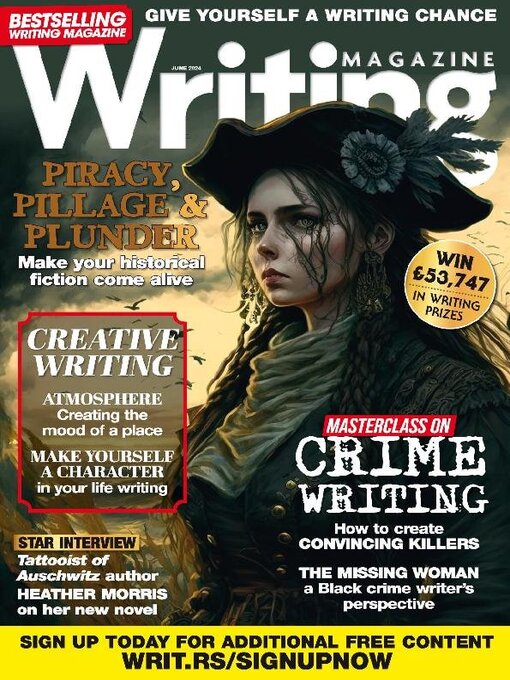
 Feb 01 2026
Feb 01 2026
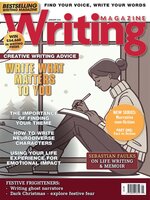 Jan 01 2026
Jan 01 2026
 Dec 01 2025
Dec 01 2025
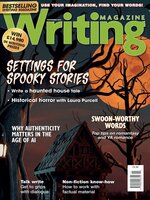 Nov 01 2025
Nov 01 2025
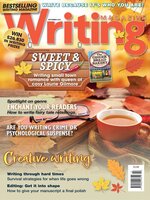 Oct 01 2025
Oct 01 2025
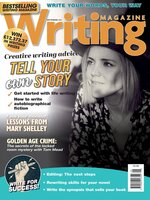 Sep 01 2025
Sep 01 2025
 Aug 01 2025
Aug 01 2025
 Jul 01 2025
Jul 01 2025
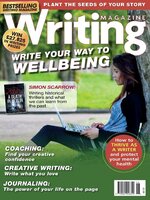 Jun 01 2025
Jun 01 2025
 May 01 2025
May 01 2025
 Apr 01 2025
Apr 01 2025
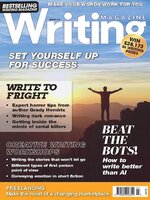 Mar 01 2025
Mar 01 2025
 Feb 01 2025
Feb 01 2025
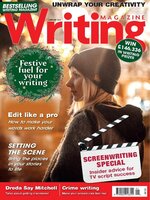 Jan 01 2025
Jan 01 2025
 Dec 01 2024
Dec 01 2024
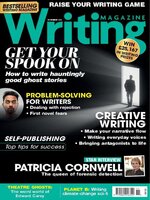 Nov 01 2024
Nov 01 2024
 Oct 01 2024
Oct 01 2024
 Sep 01 2024
Sep 01 2024
 Aug 01 2024
Aug 01 2024
 Jul 01 2024
Jul 01 2024
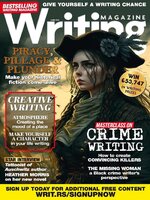 Jun 01 2024
Jun 01 2024
 May 01 2024
May 01 2024
 Apr 01 2024
Apr 01 2024
 Mar 01 2024
Mar 01 2024